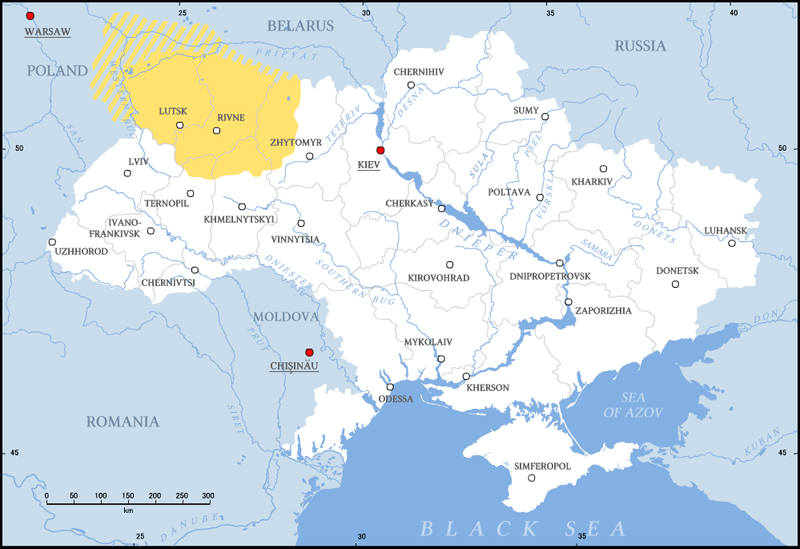MAY 30, 2023 – One evening recently I stumbled upon a Polish film entitled Wołyń (pronounced, VO-win), which is a region of Central-Eastern Europe fraught with history and bloodshed in a four-way tug-of-war among Poles, Jews, Ukrainians, Russians and Germans. Notice that I said “four-way” but named five “tribes.” That’s because historically, the Jewish population has always gotten pounded by all sides. The fact that in diaspora they’ve managed to survive and thrive is a testament to the depth of their roots and the nature of their cultural strength.
The focus of the film, however, is not on the plight of Jews in the Pale of Settlement, much of which lay within Wołyn or “Volhynia” or “Volynia.” Central to the film was the unspeakable horrors committed by Ukrainians against Poles, which brutalities, of course, produced retaliatory cruelty. In the midst of it, were the unconscionable terror committed by the Soviet NKVD and the Nazi invaders.
The story begins, ironically, but not unlikely, with the festive marriage celebration of a Polish girl and Ukrainian man, both in the full flower of youth, both of peasant stock. Concurrently, a growing romance develops between the girl’s sister and another local Ukrainian—a dashing type who on horseback can roundly beat all his peers and in good cheer.
But deep-seated, time-honored prejudices exist astride outward appearances. The tinderbox is lit by the Soviet land-grab that soon follows the Molotov-Ribbentrop Pact (August 23, 1939) and the outbreak of WW II (September 1, 1939). Soon crimes against humanity are in full gear.
In the eyes and mind of the beholder, assisted by graphic, cinematic depiction, three aspects of the horrors are front and center: 1. The current crimes against humanity, which in Putin’s version of Russian translates as, “special military operations,” much as the Nazi crimes against Jews was euphemistically framed as sort of comprehensive “solution,” 2. Historically, woman have been treated as chattel and horribly victimized—across many if not nearly all cultures, and 3. Religion, just as any other powerful institution, can be as destructive as it can be beneficial to human welfare.
If none of these themes is new, each is worthy of our attention, given our proclivity for repeating bad behavior.
In the first place, current Russian attacks against Ukraine aren’t analogous to say, China invading Sweden. In the latter instance, historically, the two countries have never experienced territorial overlap or affiliation. On the other hand, over centuries Russia and Ukraine—and Poland, for that matter; even Sweden—have experienced substantial territorial competition. This historical fact, relied upon by Putin to justify his aggression, doesn’t render Russian behavior any more acceptable by current moral and legal standards. To argue otherwise is to espouse brutal warfare among all nations and peoples. What the history does teach us is that this part of the world is dripping with blood and unspeakable horrors, and ought to inform analysis of Putin’s mindset and the Russian capacity for endless conflict, however ill-fated its outcome for both Putin and Russia. (Cont.)
Subscribe to this blog and receive notifications of new posts by email.
© 2023 by Eric Nilsson
